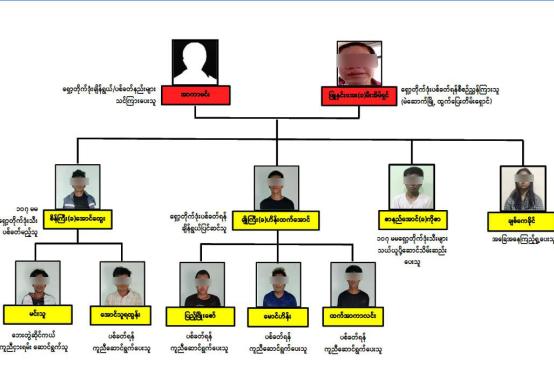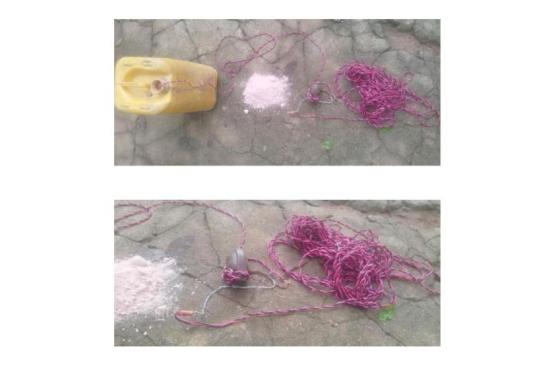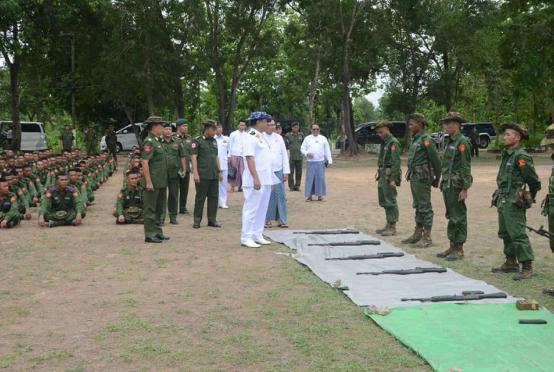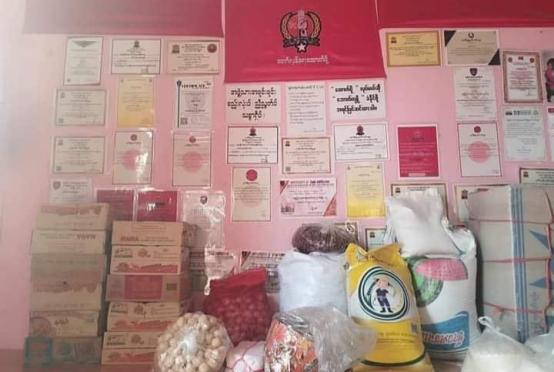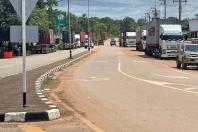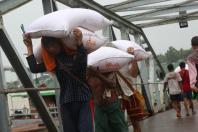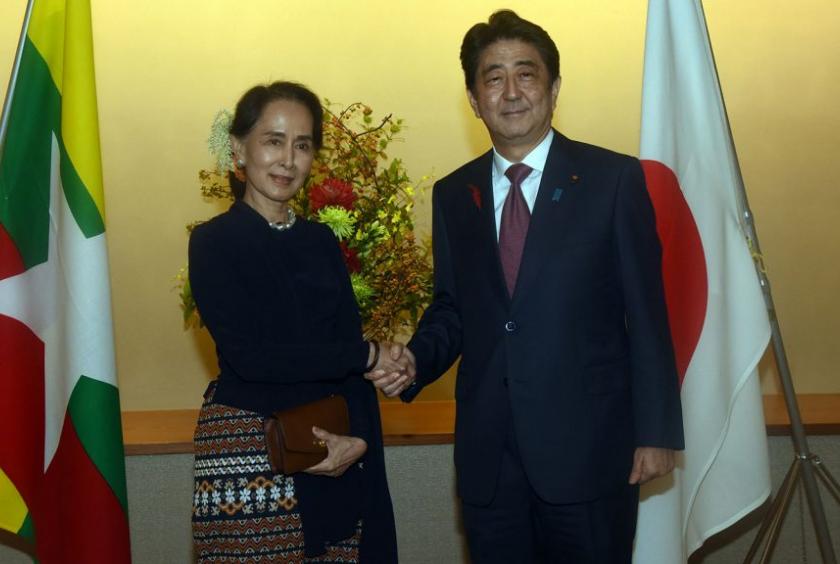
This morning at the meeting we were able to review the Mekong-Japan cooperation process, particularly years between 2015 and ’18, said Myanmar’s civilian leader, Aung San Suu Kyi, during a joint news conference after the meeting at the State Guesthouse in Tokyo’s Akasaka district.
The leaders of five Mekong countries and Japan held the 10th Mekong-Japan Summit on October 9 in Tokyo, issuing a joint statement afterwards that pledged cooperation on the promotion of development programs and further improvement on “connectivity” and “quality infrastructure” projects in the region.
“This morning at the meeting we were able to review the Mekong-Japan cooperation process, particularly years between 2015 and ’18,” said Myanmar’s civilian leader, Aung San Suu Kyi, during a joint news conference after the meeting at the State Guesthouse in Tokyo’s Akasaka district.
“We all agreed that this has been very beneficial for both Japan and Mekong countries. Myanmar itself … (has) benefited from over 16 bilateral projects and 100 multilateral projects as part of the Mekong-Japan cooperation,” she added.
Representing the Southeast Asian nations at the event were Cambodian Prime Minister Hun Sen, Laotian Prime Minister Thongloun Sisoulith, Thai Prime Minister Prayuth Chan-ocha, Vietnamese Prime Minister Nguyen Xuan Phuc and Myanmar’s Suu Kyi.
The summit has been convened every year since 2009, with Japan hosting the event once every three years.
“Japanese companies’ investment in the Mekong region exceeded more than ¥2 trillion during the last three years. More than 70 percent of the total (official development assistance) to ASEAN over the last three years was allocated to the Mekong region,” Prime Minister Shinzo Abe said at the news conference, referring to Association of Southeast Asian Nations. “Following the track record of such support, in order to realize private investment more than before, Japan will utilize public funds including overseas loans, investments and ODA,” he added.
With the Tokyo Strategy 2018 for Mekong-Japan Cooperation, Japan also appears to be trying to expand its economic foothold in the region to counter China’s growing influence.
In past diplomatic statements, Tokyo has often used the phrase “quality infrastructure” to contrast Japan-led projects, which are often more expensive, with those offered by Chinese companies.
Along the same lines, the joint statement also upheld Japan’s policy of calling for “a free and open Indo-Pacific” region — diplomatic rhetoric aimed at keeping China’s growing influence in check in the regions spanning from Southeast Asia to the African continent.
The leaders also noted the importance of maintaining the rules-based order and freedom of navigation in the South China Sea.
Japan and the five countries also agreed to have senior officials work out new goals to promote “sustainable, diverse and inclusive” development toward 2030.
The joint statement plan for enhancing connectivity within the five nations calls for the build up of more hardware infrastructure in the region, modernizing custom systems and improving supply-chain networks both in and outside the region.
“The Mekong sub-region connects emerging mega-markets; China, India and other ASEAN countries,” the joint statement noted.
“It is essential to advance the industrial structure and improve the value-chain network in the Mekong region and beyond,” according to the statement.
Many Japanese firms believe the Mekong region — besides showing promise as a growing market — has potential to become a major manufacturing hub.
The five Asian nations and Japan also reaffirmed their commitment to realizing the complete, verifiable and irreversible dismantlement of the nuclear weapons and ballistic missiles of all ranges held by North Korea, according to the statement.

